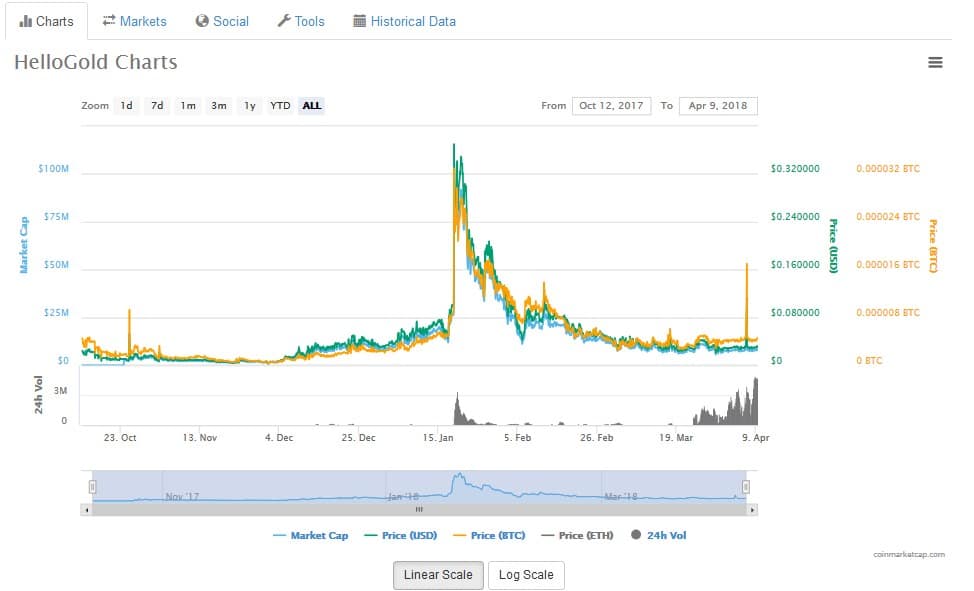While the world argues over bitcoin’s legality and blockchain use-cases, another type of conundrum is brewing in Islamic countries – their religion essentially prohibits speculative investments. Yet, Dubai and other cities seem to have found a way around this, such that their citizens can invest in cryptocurrencies keeping in mind both its financial and religious risks.
In the rulebook of Islamic Sharia principles, financial engineering products, interest payments, gambling activities, and speculative investment vehicles are all banned. Especially the latter, as the Sharia law frowns upon monetary speculation.
However, this is not keeping Dubai away from investing in the world’s newest financial innovation. The city recently declared itself a “cryptocurrency economic zone,” and compelled global blockchain startups to set up shop in their territory. And if you think citizens would not be benefitted from this arrangement, they seem to have found the answer in a centuries-old asset; gold.
Cryptocurrencies And Gold: An Unlikely Partnership
Dubai’s Gold Souk is famous world over for its jewelry shops, and now, cryptocurrencies have found a place between the bars of the yellow metal.
An example of this is Dubai-based cryptocurrency OneGram, that claims its tokens are backed by gold, and considers the move as a strategy which allows Muslims to invest in cryptocurrencies while being compliant with their religion.
According to its blog, every token of OneGram is “backed by at least a gram of physical gold stored in a vault.” With this explanation, the currency, on paper, is no longer a speculative vehicle, as it is backed by a real-world asset.
Founder of OneGram, Ibrahim Mohammed, further explains, “Gold was among the first forms of money in Islamic societies so this is appropriate. We are trying to prove that rules and regulations from sharia are fully compatible with digital blockchain technology.”
Since its launch in 2017, the coin has attracted tens of millions of US dollars, with 60 percent of the tokens remaining to be sold. According to the roadmap, the coins shall be available to trade in June 2018.
And in case you doubt the company’s gold claims – it has been certified by Dubai-based Al Maali Consulting, that conducted an audit and confirmed that the company indeed conforms with Islamic principles. The company is an audit venture that solely works on determining if a company is compliant with Sharia laws.
A Similar Story In Malaysia
Malaysia, another Islamic country with a vibrant financial industry, faces a similar question – can its citizens really invest in digital currencies?
Taking the path of OneGram was Malaysian HelloGold (HGT), that launched in October and advertised its approval from Islamic scholars at Kuala Lumpur-based Amanie Advisors.
According to Reuters, the chief marketing officer of HelloGold, Manuel Ho, said:
“The coin is Islamic as transactions occurred within a defined period, making them less volatile and addressing the issue of the ambiguity of pricing.”
But as the chart below shows, while the altcoin has managed to remain stable over most of it’s existence, HGT rose with the entire cryptocurrency market when it was overstretched in January 2018. Nevertheless, the HelloGold token has returned to its previous levels, around $0.03.

Source: CoinMarketCap
Sharia Laws And Finance, An Age Old Debate
Despite the issues faced by cryptocurrencies to be appealing to Islamic countries, it is important to note that majority of the banking industry in these countries is noncompliant with local religious rules. Interestingly, Muslims use traditional finance banks and their financial products as they always offer higher returns, and are arguably more convenient.
However, banks have been around for a long time, and during this period, religious practitioners seem to have accepted these institutions and consider them working towards the goodwill of people. Banks in these countries also have a “sharia committee,” that determines if the institution is compliant with the Islamic laws at all times. Compared to this, cryptocurrencies are a recent development and the same can’t be said of them. While several scholars, such as California-based Monzer Kahf, have deemed bitcoin a legitimate medium of exchange, others have came out against cryptocurrencies.
Chairman of the Sharia Committee in HSBC’s Malaysia office, Ziyaad Mahomed, said, “One of the biggest difficulties is that there is so much to talk about, and so little certainty in the way crypto will be playing out.” He also pointed out that some consensus has been achieved that cryptocurrencies are a form of wealth.
In conclusion, while the debate between sharia authorities for cryptocurrency’s religious compliance goes on, a final consensus is yet to be reached and agreed upon by all Islamic bodies. However, much like bitcoin, there is no central authority to set standards for Islamic finance; while there are several global bodies that make reccomendations, these authorities cannot enforce these rules. Mahomed stated:
“Overall, more evidence is needed to reach a consensus, at least until higher bodies pronounce themselves on the issue, such as the Islamic Fiqh Academy.”
The post How Bullion is Playing a Role in Attracting Islamic Investors to Cryptocurrencies appeared first on BTCMANAGER.
Author: BTCManager.com
Leave a Reply